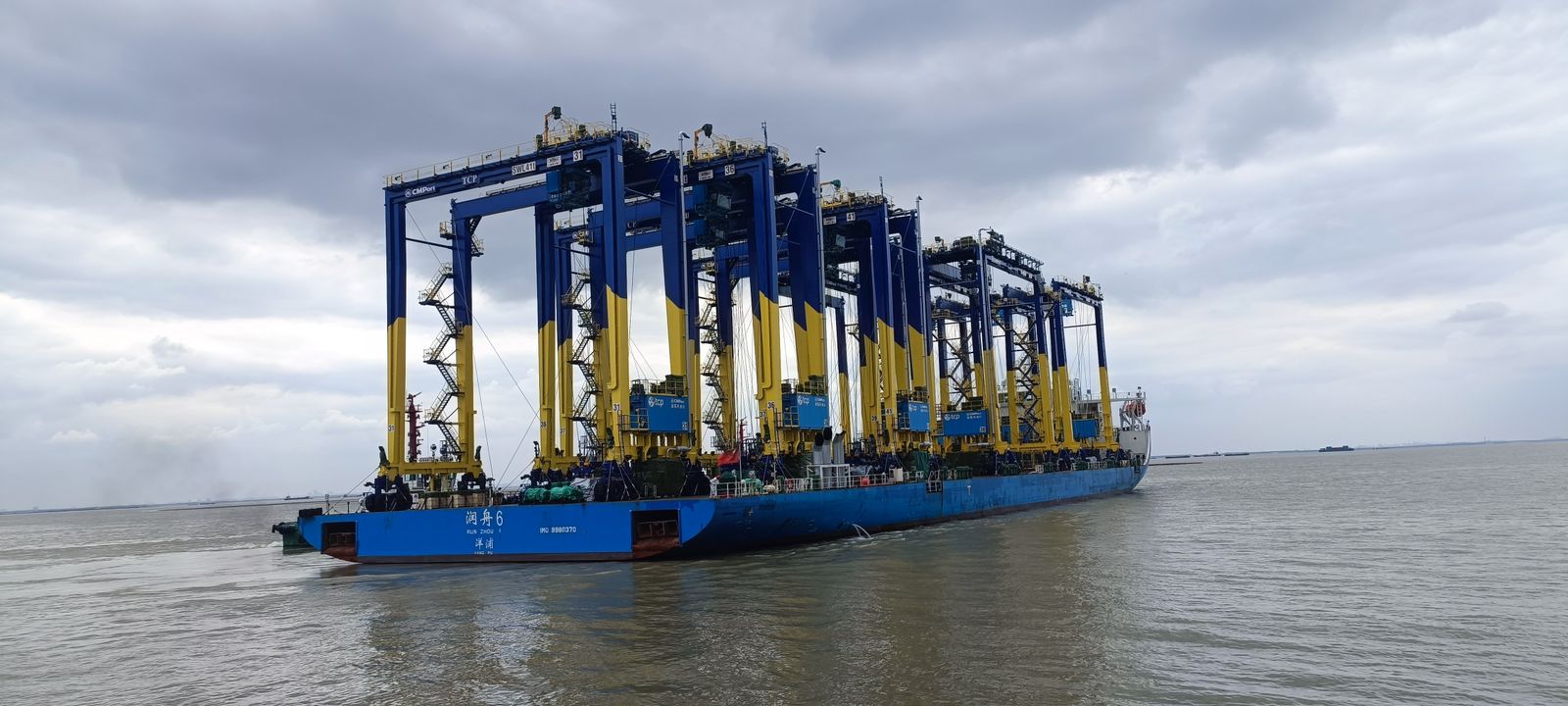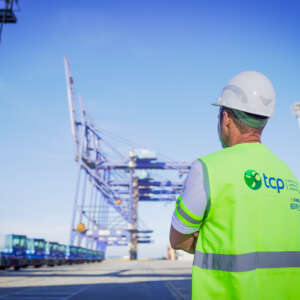RTGs are already en route to Brazil and should arrive in November this year
TCP, the company that manages the Paranaguá Container Terminal, will receive 11 new RTGs (Rubber Tyred Gantry). The equipment, purchased in August 2022, left China on October 8 this year and should arrive in Paranaguá by the end of November, a month ahead of schedule.
Manufactured by the Chinese company ZPMC, the 11 cranes have a lifting height of 21.2 meters, allowing a stacking capacity of 6+1, and can lift 41 tons. “With the new equipment, TCP’s number of RTGs rises from 29 to 40, a substantial increase of 38% in our fleet of transshippers, which will ensure an increase in productivity and greater reliability of the ship’s rear operation,” explains TCP’s maintenance manager, Fernando Henrique Carneiro Reis.
The RTGs are also equipped with new safety technologies, such as laser stack mapping and an anti-truck lift system, which prevents accidents in cases where the container gets stuck in the body of a truck.
TCP’s purchase of the new RTGs is part of a R$370 million investment package, which should be completed by the end of this year. Among the projects already completed are the acquisition of 17 new Terminal Tractors (TTs), the electrification of two RTGs that operate on the railway line, the construction of a new GIS model power substation (gas-insulated substations), among others.
Also planned for 2023 is the expansion of the number of sockets in the reefer yard from 3,572 to 5,126, an increase of 43%. The space is used to store temperature-controlled containers, such as those used to transport frozen meat, the main commodity handled by the terminal, which is considered the largest frozen chicken export corridor in the world.
Increasing the fleet of trucks for container transportation
In August, TCP signed the purchase of 17 Terminal Tractors (TTs) of the KT2i 4×2 model, manufactured in Poland by Kalmar, considered the most modern available on the market. The new trucks have the capacity to carry up to 85 tons of cargo and have an autonomy of three days of uninterrupted operations, double the working period of the vehicles in use at the terminal. The equipment, used to transport containers between ship, yard, warehouse and railroad, is scheduled to arrive in November and will increase the terminal’s fleet by 33%.
In addition to the purchase of the TTs, TCP intends to acquire a further 27 terminal trailers (semi-trailers) to complement the fleet.



